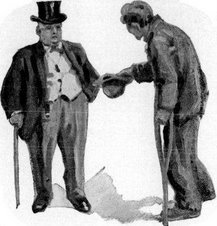Prelude
The Chinese consulate's visa office is efficient. It has to be, since it is thronged from the moment it opens in the morning. A display above the row of windows shows a queue of the next several applicants' numbers and assigned windows, so you know the optimal time to get up and and stand at the assigned window. My wait time was short, even though the waiting area was full. Same-day service (about 4 hours, really) costs just a little more, and a kiosk in the waiting room enables you to check the status of your visa processing by scanning the bar code on your receipt. They seem to beat their estimated completion time, so show up a little early for pick up and check at the kiosk.
United Airlines still uses the East German service model: The PA system blasts your ears if you are unlucky enough to use their “entertainment” system when the safety announcements are made. The seats are packed-in, making it difficult to use a laptop. The Boeing 737 is dingy, and the lavatories smelly. Service is sparse and unfriendly: If you ask what is in the snack boxes, you are told to look it up in the magazine. There are worse airlines, but not by much.
The plane was delayed at departure due to a broken seat. More seriously, the smell of burning electrical insulation filled the cabin in the middle of the flight. It was serious enough to cause the flight attendants to grab fire extinguishers, and for passengers to get out of their seats to try to assess the seriousness of situation themselves.
This time, United got me to my connecting flight, barely. The 747 out of SFO was an improvement over the flight from Boston. The service was less customer-hostile. In-ear, noise-isolating headphones and a few hours of sleep on this leg of the flight were key to arriving Monday afternoon in good enough shape to push through to evening in Beijing without falling asleep too early. The 12 hour time difference was easier to adjust to than the 6 hour difference to Europe.
What it's like to be illiterate
The biggest pucker-factor in traveling to China is the fact that, if you have not put in the considerable effort to learn a few hundred Chinese characters at a minimum, you are illiterate. On top of that, Chinese pronunciation isn't easy, and the locals are not used to non-native speakers mangling their language. Nobody will understand what you are staying if you try to use a phrasebook. If you get lost, you are screwed.
You must have your hotel's address and phone number printed in Chinese to show the taxi driver. At the airport in Beijing, walk past the touts for gypsy cabs and go straight to the efficiently-run official taxi line. The attendant will make sure the driver understands where he is to go.
Even though people are getting their visas for travel to China as fast as the consulate can process them, the scale of Beijing means that visitors are swallowed up. The hotel clerk will speak enough English to get you checked in. That's it. You are well and truly in China, and most of it isn't labeled in English. Signs are undecipherable to you, and therefore untranslatable, even if you had a dictionary.
Hotels are plentiful, moderately priced, and (at least the better moderately priced ones) clean. Since it is nice to have a hot shower and BBC news in a place where you can't read and nobody understands what you are saying, I would not economize on the hotel too much. Food, however, is another matter. You will be happier in a local noodle shop than in the hotel restaurant. The only substandard food experience I found in Beijing was at a hotel restaurant where the potstickers looked as if they came straight out of the freezer and into the Fryalator. Noodles are to Beijing what bread is to Paris. The locals will gawk at you, and you will have to point at what you want, but it's worth it.
Smog
Beijing is often cloaked in smog. Monday afternoon combined smog with a low overcast. Eventually it rained. The evening was science-fiction gloomy, illuminated by incomprehensible shop signs reflected in the wet pavement of the main road through the Haidan district. Disappointingly, the evening did not include anyone saying “He say you blade runner.”
Tuesday
The rain failed to clear the smog, and a pale yellowish-browish haze created a bubble of visibility about three blocks in radius.
China, as a relatively open society in practical terms - that is, where people can choose their education and employment - is less than 25 years old. Everything is new here. So, although liberalization in China predates the fall of the Berlin Wall, it started from a far more closed society, and with a far larger population.
The fast pace and massive scale of development in China gives rise to startling realizations: Although Beijing is full of cars, people measure their driving experience in thousands of miles, not years. Almost everyone working in software is young, and they look younger.
While not readily visible in Beijing, there are aspects of China that remain Dickensian in their vividness: A news story about an orphanage for deaf-mutes renting their children to pickpocket rings, and another about a horrific industrial accident in a steel mill, for example.
Big, and getting bigger faster and faster
China consumes half the world's production of concrete and one third of the steel. It is said half the construction cranes in the world are in China. Maybe more. Beijing is a mid-rise city, perhaps due to an aversion to having the Imperial Palace fenced in by skyscrapers. Instead, 15-30 story buildings line the boulevards in all directions for miles. Seldom is a new apartment building a singleton. More likely four, or six towers cluster together.
Beijing is not a tidy north European city. There are plenty of older, down at the heels apartment buildings. Petty theft is a common topic even in English language newspapers. But brief strolls away from the main road, through the back streets where apartments tower behind the front rank of commercial buildings found little misery or hooliganism.
Construction workers live on-site, in prefabricated two and three story metal dormitories. These were much in evidence in the Haidan district since a new subway line is under construction.
China is young
Young people, often walking hand in hand, were typical of the people on the street. Modest shops catering to the locals are in the side streets, and, often enough, on the main road, too. The shopkeepers were typically cheery, often chatting with friends or customers in front of the the usually small shops. The scale of Beijing ensures tourist shops cluster near the Imperial Palace and a couple of nightclub districts. Everyplace else has to make a go of it based on the local people's custom.
The defining characteristic of Beijing is youth and easy informality. People are neither wearing rags nor do they stretch to look more “proper” than they need to. Work attire at technology companies, where pay is a bit higher than average, is remarkable for being mostly the same as what coders everywhere wear. Workmen loudly go about constructing the shop next door to a restaurant, and diners are unfazed by the noise. Beijing is about getting on with commerce.
While a city this large cannot be dominated by a building, the Olympics are on everyone's mind. Much of the modernization of Beijing was driven by the deadline of the Olympics and the people of Beijing are genuinely excited that the world will see what their city has become.
In 25 years, hundreds of square miles of overcrowded hutongs have been transformed into a modern cityscape, even as the city absorbed millions of migrants from the countryside. Millions of trees have been planted in time to grow large before the Games. Hundreds of miles of new expressways were built, and were filled with cars in only the last decade. If anyone still thinks China is a cluster of industrial parks feeding the Wal Mart supply chain, they will be stunned to see Beijing.
Mobile culture in Beijing
The Chinese have phones. Many of them have nicer and more expensive phones than people at the corresponding income level in other countries, indicating that the mobile phone attracts a larger share of income.
The typical mobile phone shop, or department in an electronics shop, puts the high-end Nokias and SonyEricssons up front. The mainstay phones are little different from those in the U.S., with color LCDs and the usual set of features, a bit trailing-edge, with an emphasis on low price. Super-low-end phones are available, with monochrome displays, but not all that common. As in the U.S., most phones are GSM, with a large minority of CDMA phones.
I have seen the future of electric vehicles
The government makes is hard to get a registration for a motorcycle or scooter, so these are rare on the streets of Beijing. Bicycles are still commonplace, but the typical Beijing commuter takes the bus or the subway. Taxis are ubiquitous, and there are enough people who can afford cars to clog the roads and make it faster to bike during rush hour. The main boulevards have frontage roads that are for parking and for bicycle traffic.
But the real star of Beijing traffic is the e-bike. An e-bike is a bicycle with a 250 watt electric motor in the rear hub, and a battery pack on the down-tube or behind the seat-tube. The batteries are removable for charging at home or at the office, and pedals ensure that you cannot be stranded by a faulty charger or unexpected side trips that exceed the range of the batteries. The look is somewhere between that of a bike and a very light moped. Some come with more powerful motors and larger batteries, and look like scooters.
The popularity of e-bikes is exploding. They glide along at about the top speed of a bicyclist, and because they can keep that up consistently, they are the fastest way to go when traffic is heavy. They are incredibly energy-efficient, and cost about US$300 – affordable for most Beijing commuters.
The impetus to create e-bike products is the limitation on motorized scooter and motorcycle registrations, so this is a market that is rapidly evolving in China. Outside China, Giant and a few other bicycle OEMs sell e-bikes in the U.S., but these products are expensive and have not found a customer base. Ad hoc importers, which you can find on eBay, offer China domestic-market models but at a steep mark-up.
The knock on e-bikes is that the lead acid batteries must be replaced every two years – more often than car batteries. While lead acid batteries have been successfully recycled for decades, there have also been numerous cases of poor practice in developing-world recycling plants. However, if proper recycling can be assured, the e-bike could become a very beneficial global phenomenon.
Coffee in Beijing
Coffee is foreign. Coffee is expensive. “Coffee shops” often don't “get” coffee. But sometimes, you need coffee. The strangest food experience I found was in a “coffee shop” where I ordered a coffee, which was passable, and a “puff pastry” that turned out to be a blob of deviled ham on a toaster waffle.
The Coffee Time chain of coffee shops is very good, however. Excellent espresso drinks and gelati in the Italian style. But the prices are high enough to keep the locals mostly out.
As with many other things in China, coffee and chain restaurants are new and still being worked out. Things are happening faster than the local tastes can absorb, and some commercial developments have the logic of an Internet land-rush, where presence equals success. The number of Kentucky Fried Chicken and Papa Ginos in Beijing probably have more to do with aggressive execution on the part of the companies behind these chains than a real taste for this kind of food.
Friday
Smog dominated the sky until Thursday evening. Thursday night was windy enough to blow the cap of smog off, and Friday dawned bright and clear. Bright sunlight, sharp shadows, and blue sky, as far different from the combination of smog and rain that greeted my arrival as can be.
The office where I was visiting now had a view of the mountains north of Beijing, a bit like the typical view of mountains in San Jose. The Imperial Palace and Tienanmen Square are as impressive as reputed, and very pleasant on a sunny day.
Friday, June 01, 2007
A Week in Beijing
Subscribe to:
Post Comments (Atom)





Your comments about the airline experience are priceless! I almost fell out of my chair with laughter. I think you do a good job of "capturing" Beijing.
ReplyDelete